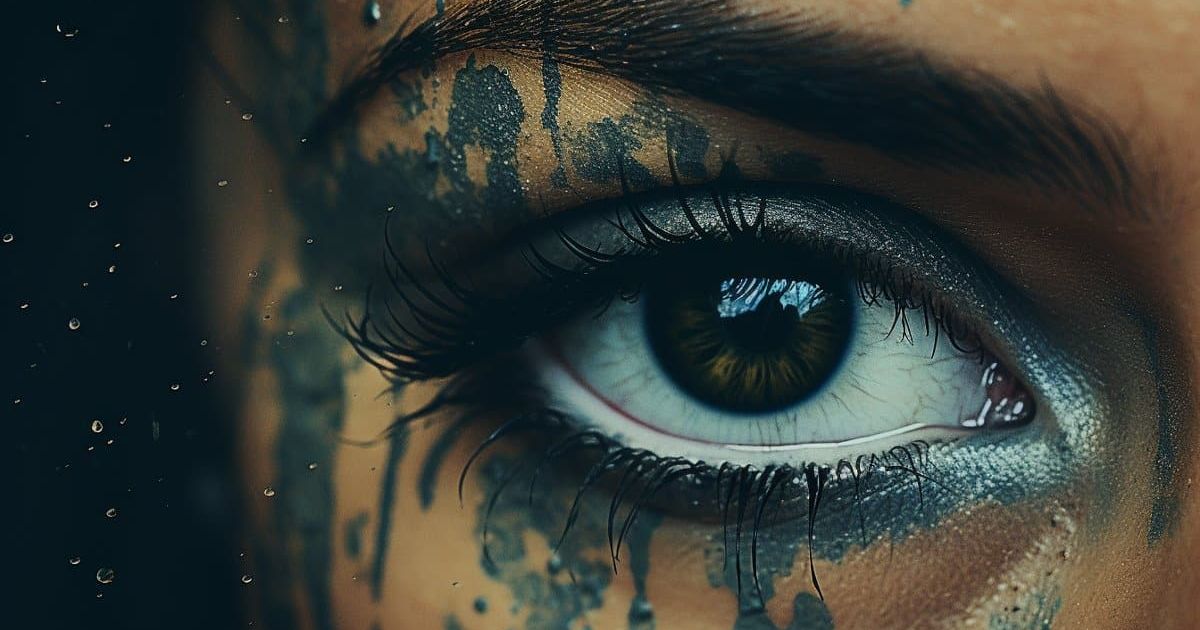Researchers at the Max Planck Institute of Psychiatry have discovered a strong association between pupillary response and depression severity in an innovative study.
This research focuses on the physiological aspects of depression and emphasizes the prospects of pupillometry as a valuable diagnostic tool that can be used to tailor individual treatment plans.
These results may change how major depressive disorder (MDD), a devastatingly heterogeneous mental health condition, is understood.
What is Pupillary Response?
The researchers found that there were specific differences in pupillary response between healthy subjects and those with depression.
The pupils of healthy participants dilated during a reward anticipation task highlighting increased activation of the locus coeruleus—a key brain structure.
However, this response was diminished, especially among depressed individuals who had listlessness, which is common in this disorder.
The locus coeruleus has the highest density of noradrenergic neurons in the central nervous system and plays a crucial role in regulating arousal and stress responses.
Suppressed pupillary reaction in depressed individuals especially those who claim to have lost pleasure or energy shows the need to understand the physiological mechanisms underpinning listlessness in depression.
Personalized Treatment Strategies
Pupillometry serves as a marker for personalized treatment strategies according to this study.
Pupillary responses are recommended by these researchers as an additional diagnostic strategy that could serve as guidance for selection and dosing of antidepressants targeting specifically noradrenergic system.
Correlation between Depression Severity and Pupillary Response
There was negative correlation between extent of pupillary dilation and severity of depressive symptoms during reward anticipation according to these researchers’ study.
In addition, such correlation could be replicated within unmedicated samples of depressive patients indicating reliability of pupillometry as a diagnostic method.
Also, greater levels of depressive symptoms were associated with weaker pupillary responses consistent with previous studies from the same research group.
Anhedonia and Pupillary Response
Moreover, this research investigated a specific linkage between reduced pupillary dilation and anhedonia, which is a core symptom in depression and is defined as a loss of interest in or ability to derive pleasure from all or almost all activities.
The authors found that right anterior insula, one of the salient regions, was negatively correlated with depression scores and items related to anhedonia during simultaneous fMRI (functional magnetic resonance imaging).
Implications for Depression Treatment
This is huge considering about 30% of depressed patients do not respond to current medications.
Pupillometry may provide physiological insights into depression that pave way for treatment customization.
If there is a significantly reduced pupillary response in a patient, antidepressants that target the noradrenergic system may be more effective for them.
Moreover, doses of medication could be optimized depending on how their eyes react to light thus providing them with more personalized and focused care.
Replication and Extension Study
To increase the credibility of their findings, the scientists carried out a replication and extension study with additional unmedicated depressed patients as well as healthy controls.
Using Bayesian modeling approach, this study confirmed that there is negative correlation between pupil dilation and symptom load during reward anticipation among MDD patients.
This replication underscored the reliability of pupillometry as a diagnostic tool although at a slightly lower effect size value.
Future Implications and Considerations
The breakthrough in understanding the connection between the severity of depression and pupillary response opens up new vistas for future research and clinical applications.
Pupillometry might become a common adjunctive method for diagnosing depressive illness and determining therapeutic efficiency.
The use of simultaneous f MRI adds more insights on neural correlates related to pupillary response, which could be targeted with respect to therapeutic interventions.
In conclusion, through linking pupillary responses to physiological underpinnings, the Max Planck Institute of Psychiatry’s research has made a significant progress towards unraveling clues about depression.
Pupillometry is poised as a diagnostic tool that has a potential of completely transforming how depression is managed in this modern age.
In relation to this severe mental health condition affecting millions of people around the world.
The research findings stress on the necessity of having an advanced perception regarding its physiological mechanisms, paving way for improved personalized interventions that would enhance its effective management.




























